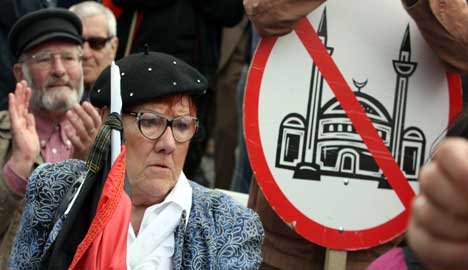In a report to air Sunday night on Germany’s public broadcaster WDR, Brinkmann says he fears Germany is becoming “too foreign” and that Sharia law will be introduced in the country.
“However, there are no, or very few, politicians who take this seriously,” Brinkmann said.
“That’s why I believe that a new right wing (in Germany) can not only succeed, but in five or ten years be as large as the FPÖ in Austria or the SVP in Switzerland,” he added, referring to Austria’s Freedom Party and the Swiss People’s Party, two far-right groups which have enjoyed a certain amount of electoral success.
The millionaire, who reportedly already has ties to Germany’s extreme-right NPD and DVU parties, will finance a building for Pro NRW to be used as an anti-Islam centre.
Burkhard Freier, the deputy head of the North Rhine-Westphalian branch of Germany’s domestic intelligence agency, the Verfassungsschutz, considers Pro NRW and a related group, Pro Köln (Pro Cologne), dangerous organisations.
However, he added that Pro NRW’s membership roll is so small, around 300, that it does not have much of an influence in North Rhine-Westphalia, Germany’s most populous state.
“That’s why they play up every new member, every property purchase and every event as big as they can on the internet so they can give their own adherents the feeling that ‘we are somebody’,” Freier said.




 Please whitelist us to continue reading.
Please whitelist us to continue reading.
Member comments